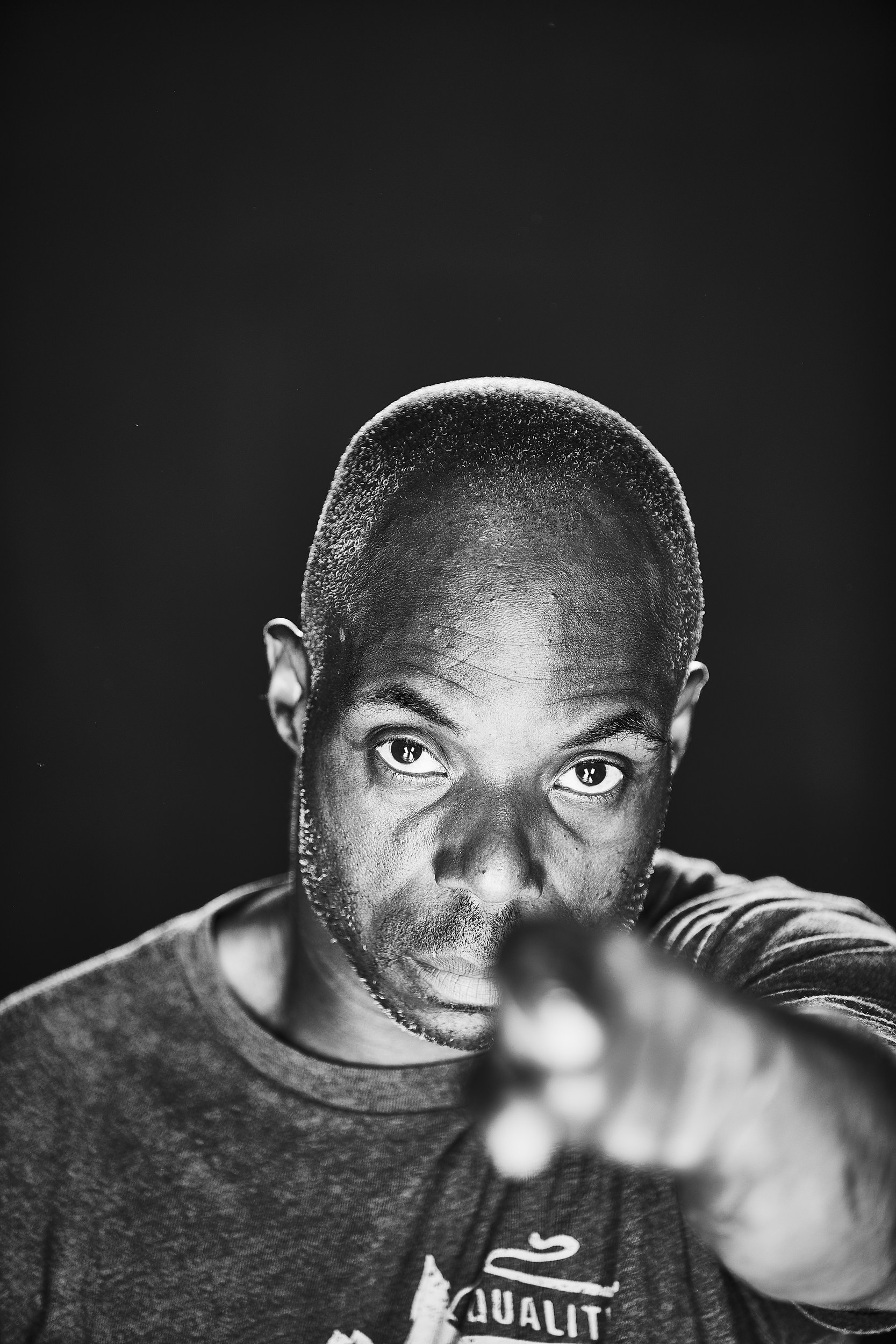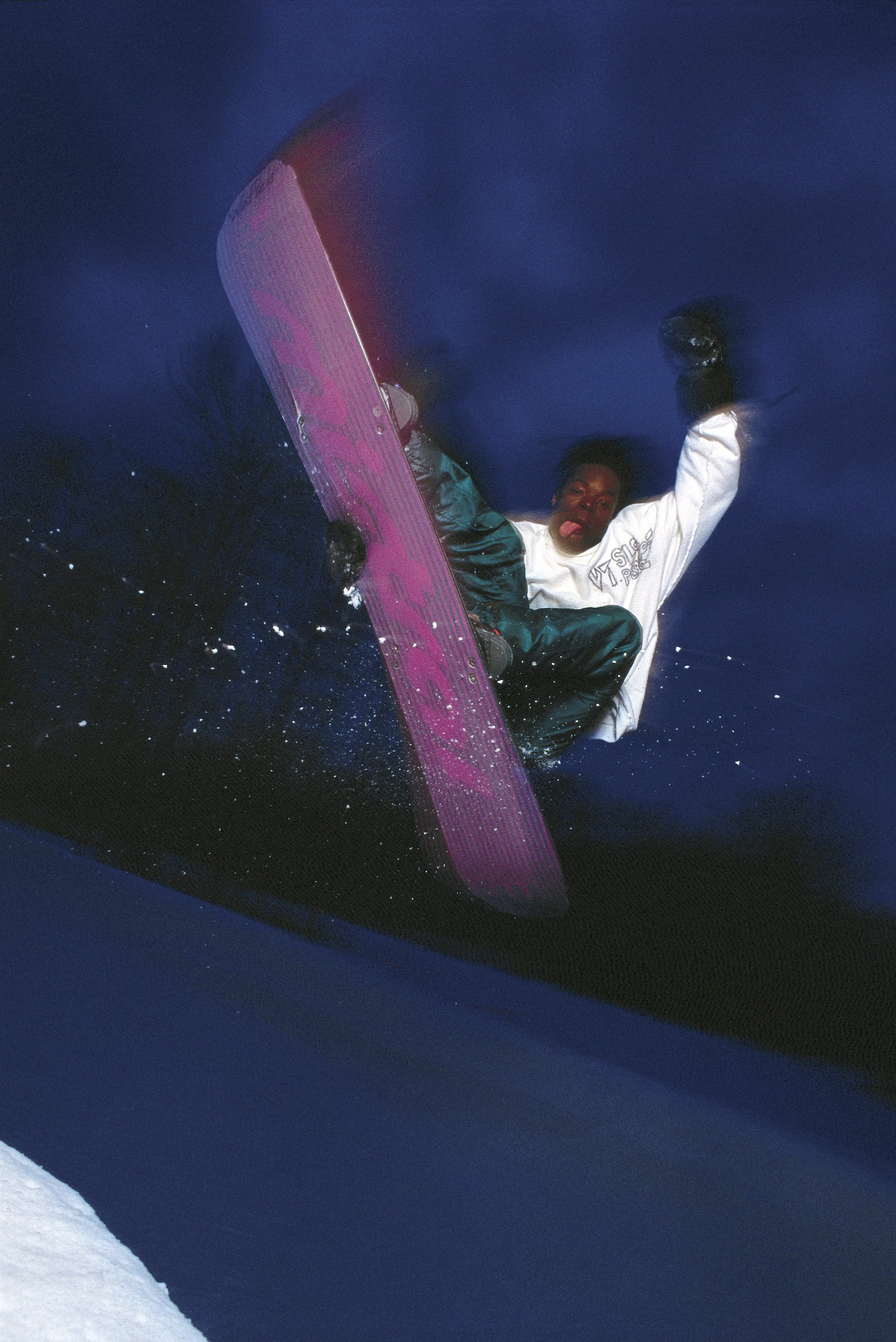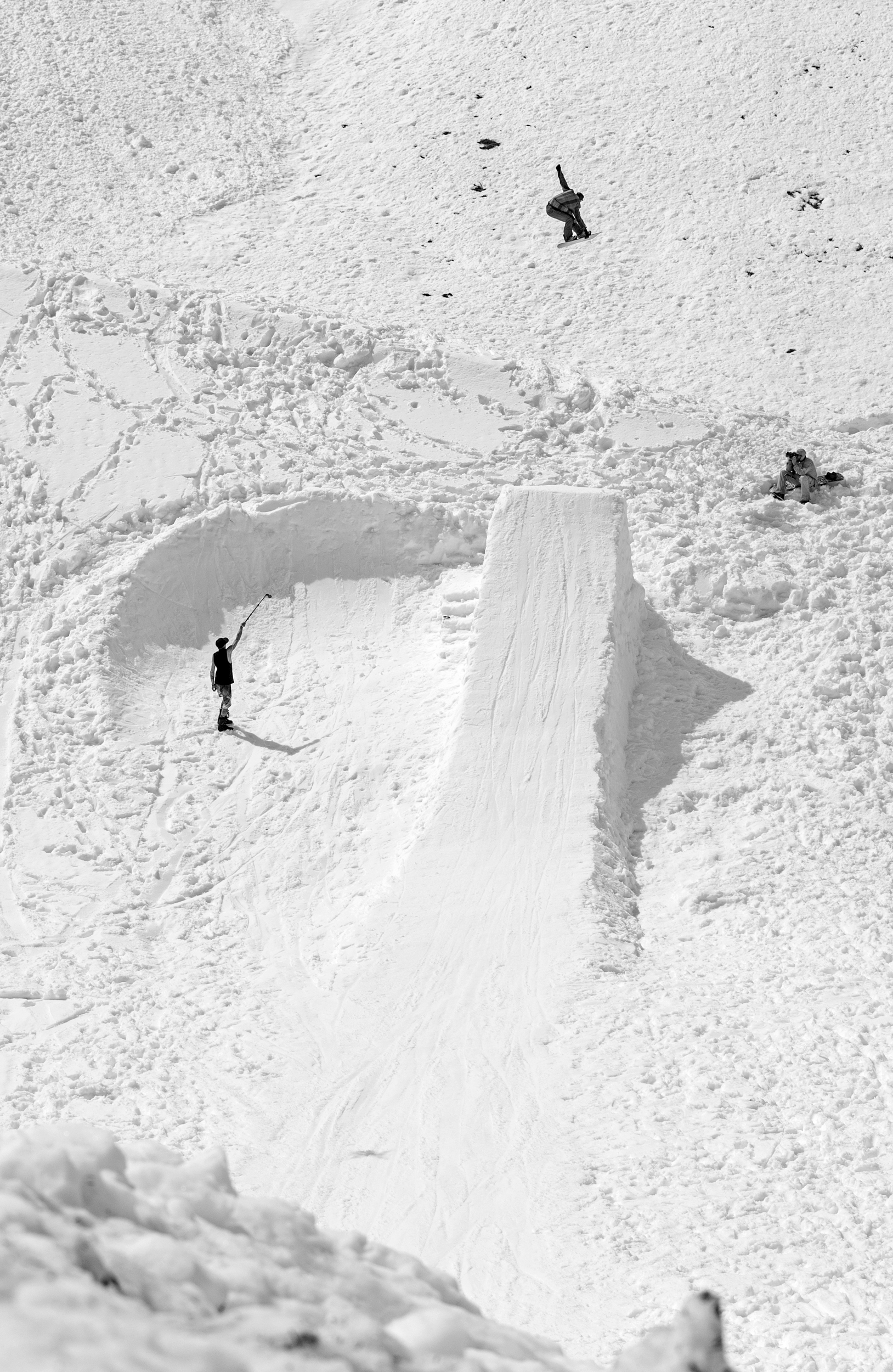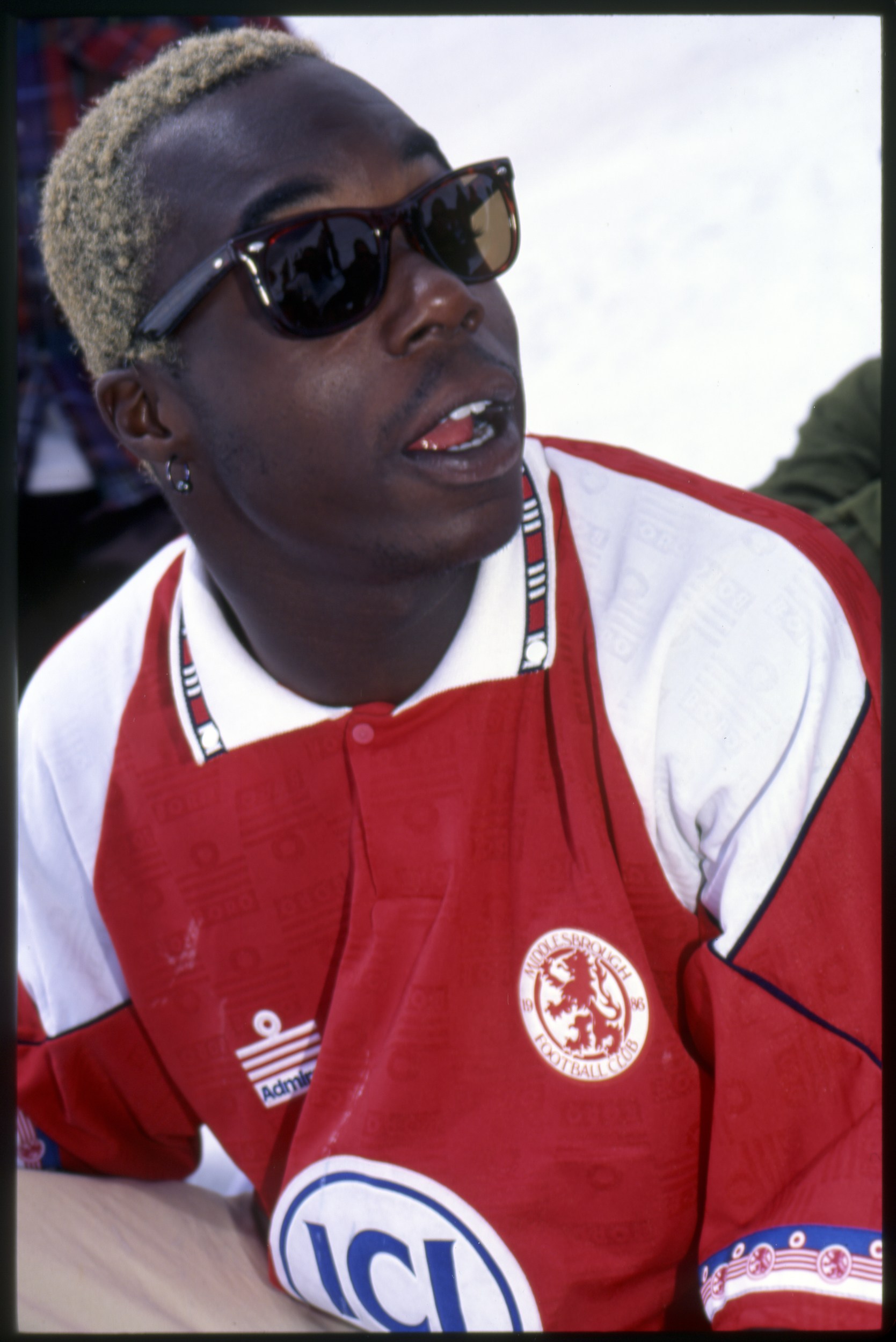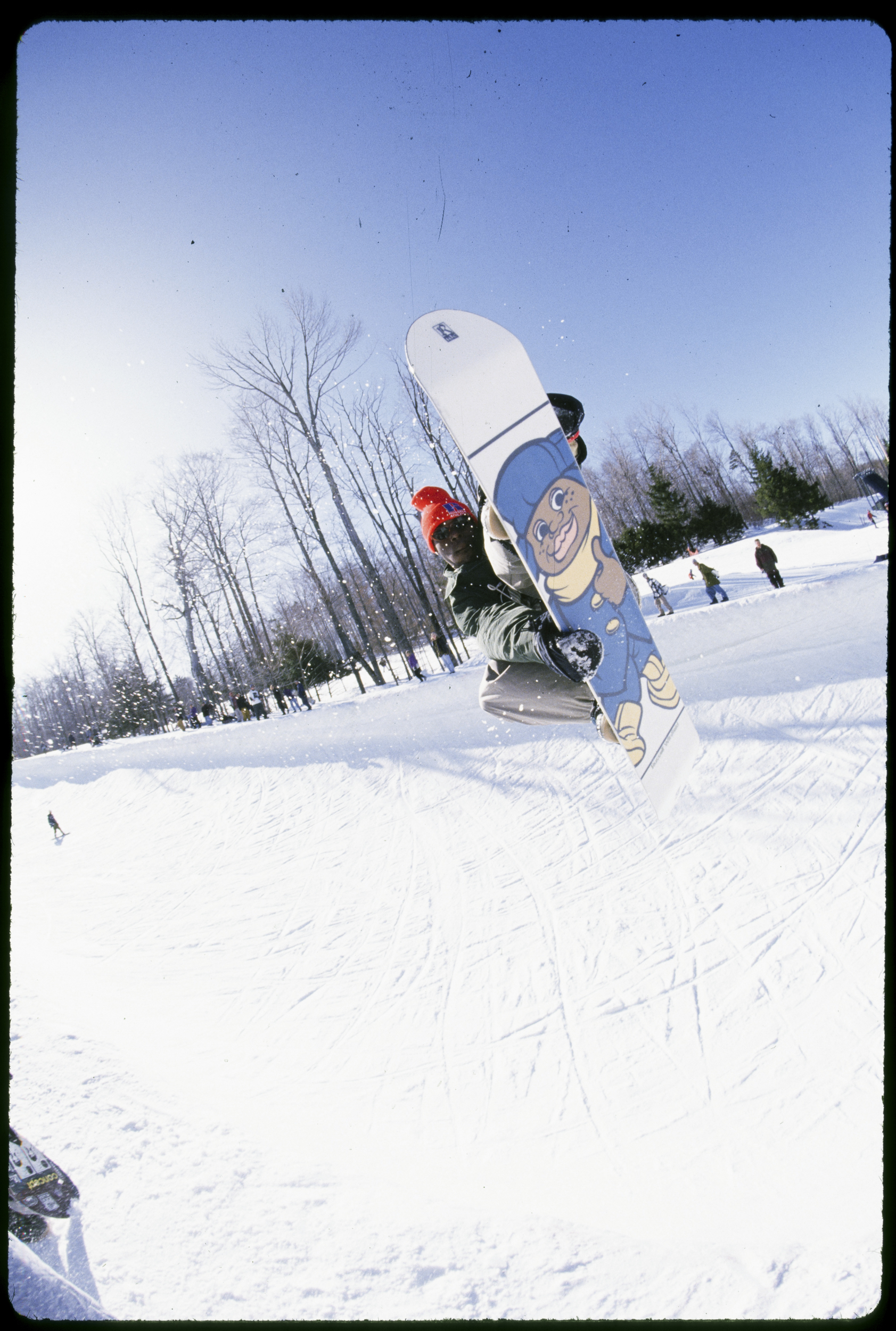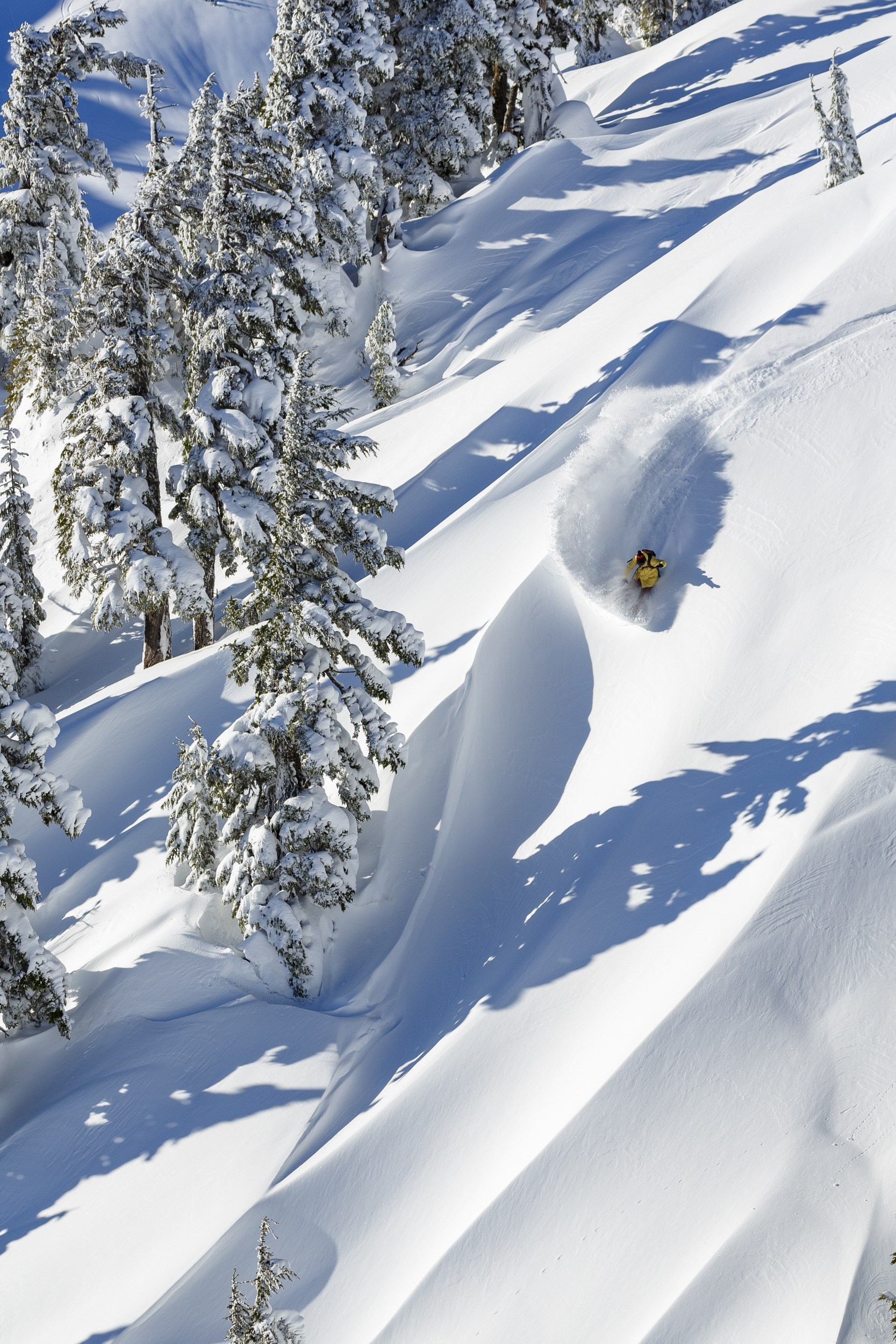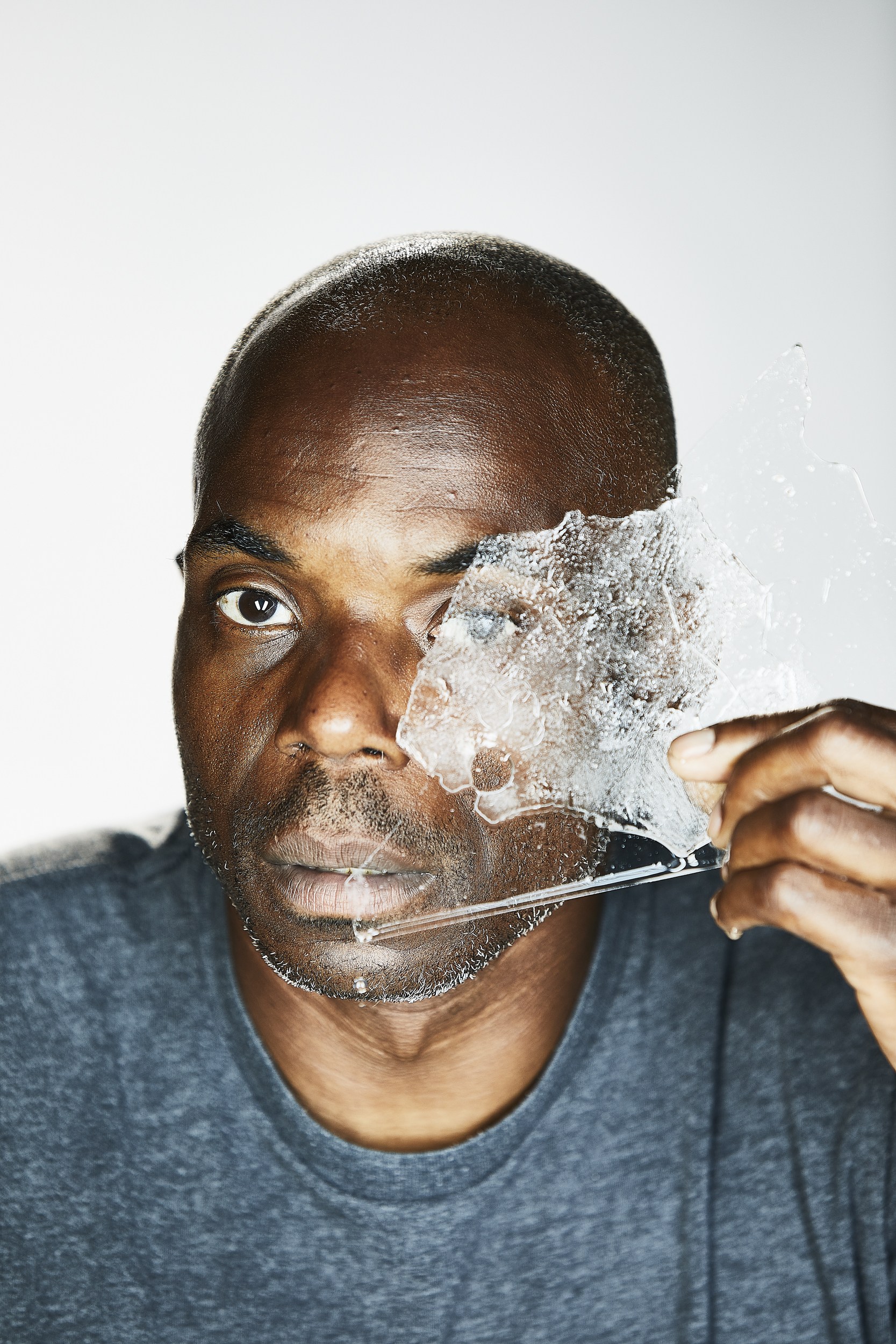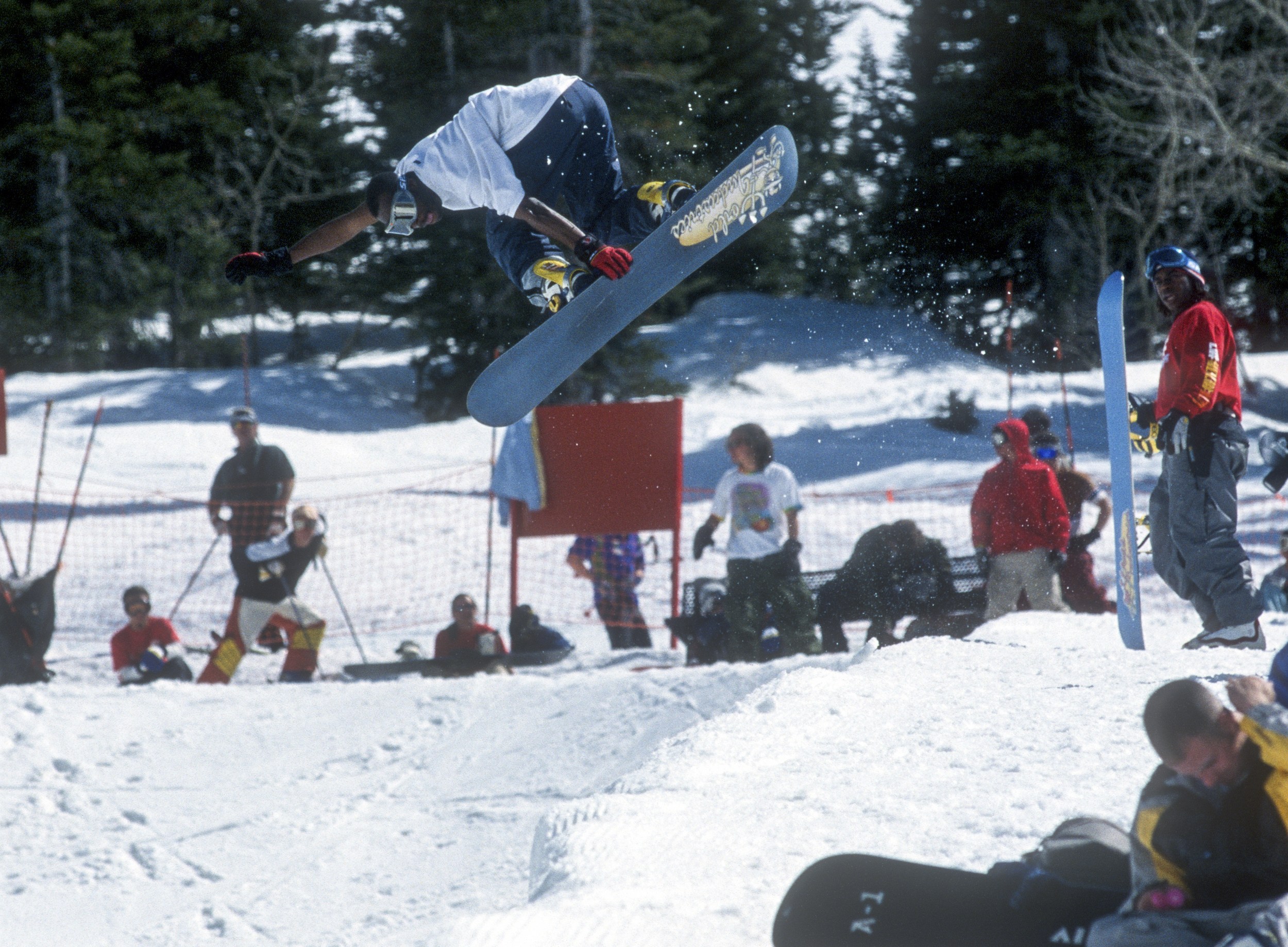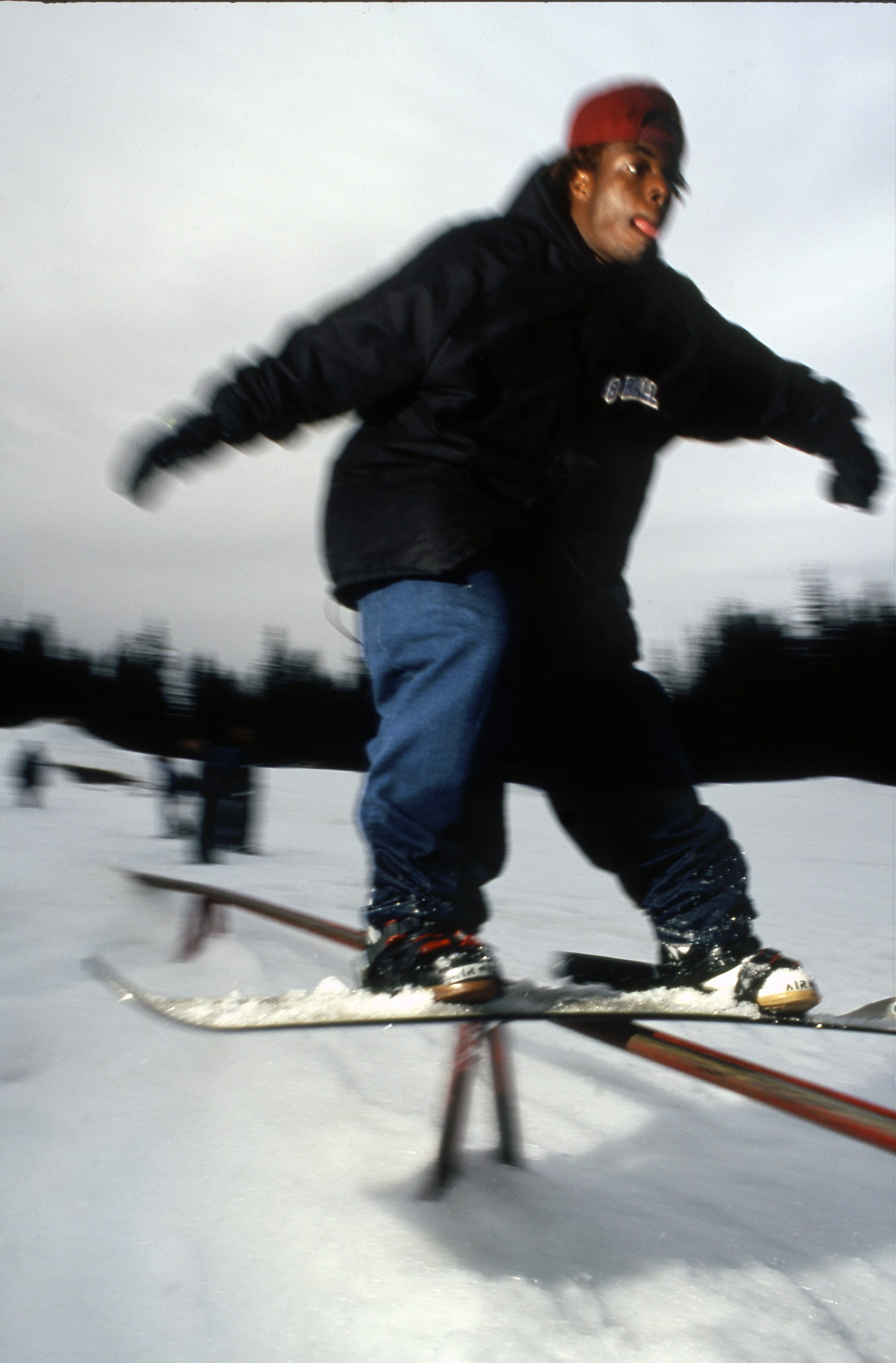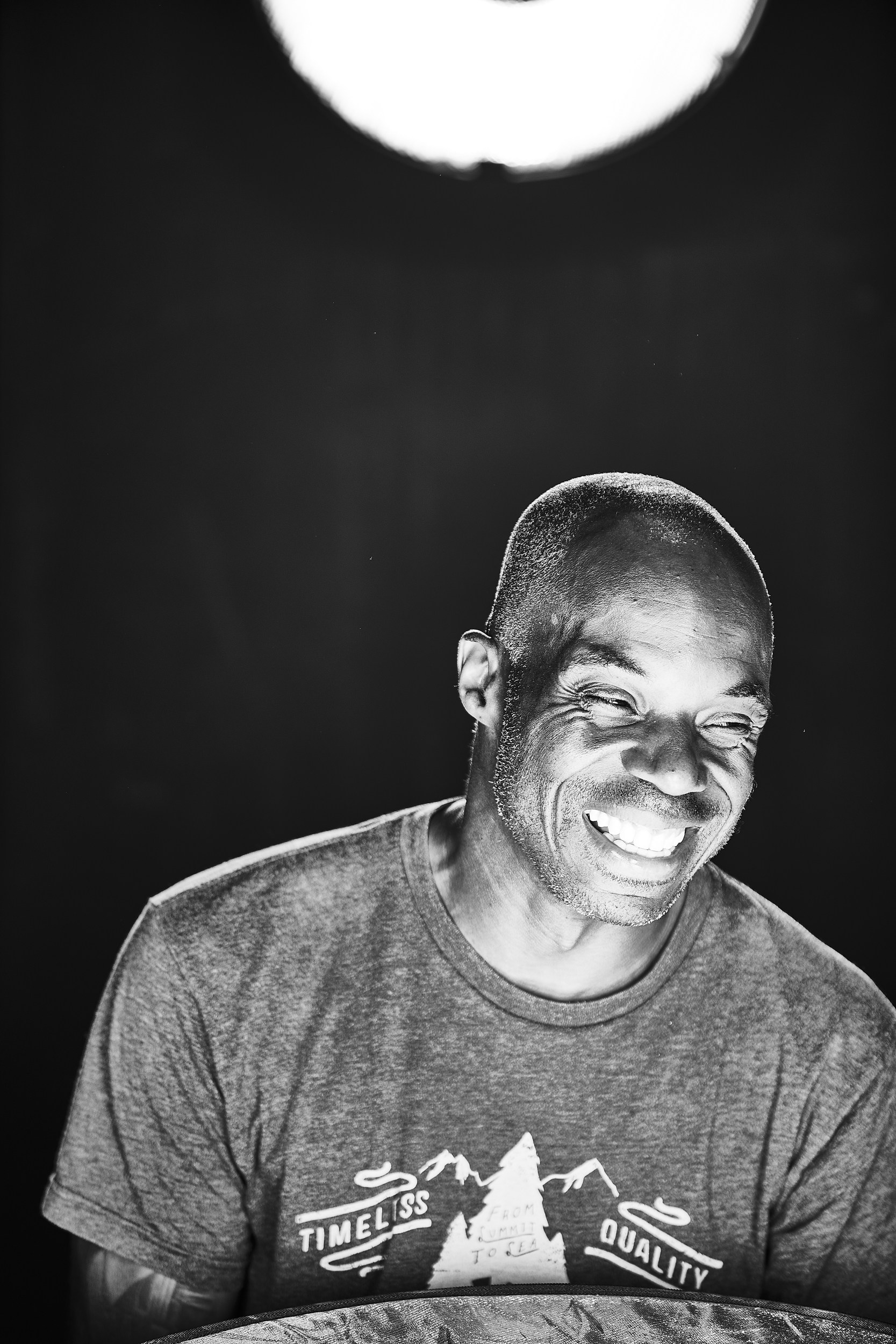When Russ called me to conduct this interview my first reaction was, “Yeah, definitely.” Russ and I have been close for years. We mostly play music together, do comedy, eat, and talk shit, so an interview situation seemed easy and natural. But like most things, saying yes is the easy part, and as I started to take stock and prepare for this, I started to notice my mind moving in many directions. I have been around Russ enough to know his style: short, blunt, and honest to a fault. Not a man of many words until he hits a tipping point, and then you better be ready to hear what he’s been cooking on, because once that cork is popped, it’s on.
Many of his best qualities are not of words, but of action, things like his dripping style, crazy humor and impersonations, his ability to network with count-less people, and often attract some of the most elusive and selective people on the planet into deep friendships. Perhaps lesser known, is his ability to write and really express emotion and moments on paper, and often turn these into songs. There is simply not enough time to talk about it, and it’s even harder with words.
The other issue I was bouncing up against was the context of this entire issue being Black snowboarding. I started to notice my expectations of working the interview towards an arc moment. We’re going to go real deep, and have a crazy talk about what it’s like to be Black in America. Also talk about what it’s like to be Black in an overly white sport.
Of course we will address racism, address being marginalized, address some real moments that Russ has experienced, so that the reader can finally have a look into what it’s like to be Black. These were my expectations and they ultimately weren’t Russ’ story to tell. The interview took a natural historical tone, and it just scratches the surface of a very intricate, emotional, and brilliant mind that has experienced deep love and deep pain, many wild times and epic triumphs, too. Welcome to a sliver of Russell Winfield’s world. – Mikey Leblanc
How did snowboarding come into your periphery?
I saw a snowboard for the first time in Greenwich, Connecticut in probably ’84. I want to say the shop was Sun and Sport or Sun and Surf. It was like the California sport store with windsurfers and skateboards, that kind of spot. I was getting a skate deck and pair of jams shorts or something, and they had the Burton Performer Elite. I was just like, What is that? I was in fifth or sixth grade. I was playing a lot of hockey back then. It would snow and I’d grab the Performer and go rip around the Apawamis Club, one of the oldest golf courses in the nation, real blue blood-y. We had a five- or six-foot rock cliff that you’d point it off and do a back scratcher or whatever. I remember that first time being completely weightless. You’re just like, Ahhhhh! That was it for me. Hockey what? Nah, I’m good.
But you were talented at hockey?
Yeah.
In my experience, hockey coaches hate snowboarding because they know you’re going to get hurt or addicted to something more fun.
Well, they didn’t even know what snowboarding was back then.
At what point would you say you developed a real addiction to riding?
Probably the third day. After that third day, I could rip down and hit a jump. I could do all that shit. Being that East Coast kid, we didn’t have surfing. We had a little bit of skating, but we didn’t have any of the West Coast stuff and I craved it. There was something inside of me that needed it. It just felt right to me. Whereas hockey, which I’ve been playing since I was three years old and was pretty accomplished at, I just didn’t get that feeling.
That crazy pull. It was the same thing for me.
I must’ve been in ninth grade, and we had a school trip to Butternut in Massachusetts. My friends from high school were good skiers and I was like, Nah, I’m snowboarding. I just remember ripping through the mogul fields and trying to do back threes. I finally just landed bolts and rode away. One kid stopped and was like, “You need to pursue that.”
So, you moved to Stratton, Vermont, which was essentially the hometown of Burton at the time and that whole crew.
The beauty of snowboarding, for me, is the culture. Especially back then. In the 80s, if you saw somebody else on the hill who could rip turns and do jumps, you wanted to hang out. At first, I would make my parents drive me three hours up to Stratton from Rye, New York and I’d just ride by myself. I’d see Tricia and Doug Byrnes ripping around. I can’t remember, but I think I just went up and started talking to them. We ended up taking laps and just became friends. After I moved to Stratton full-time, I’d teach skiing three or four days a week and then shred the rest.
Talk about the halfpipes back then. I mean, Stratton probably had the best one in the world.
But it was still horrible. It was a ditch. This dude, Lyle would come with the backhoe and shape it a few times a year. I remember I was ripping in the ditch, grabbing and doing alley oops and airs, frontside 540s, just learning stuff. It was probably all below the lip, but it felt so cool to me. I remember the US Open was coming up and they built the world-famous Stratton pipe. It was nine feet tall, but I was like, This thing is gnarly.
Did you do any contests?
My first year living at Stratton, I qualified for the first USASA nationals in 1990. It was at Snow Valley in California, so like three quarters of the way up to Big Bear from SoCal. I met Dale Rehberg there and a lot of other people who I would become lifelong friends with. I think Nate Cole was there. It was the craziest thing, ever. It snowed like eight feet and it was bluebird and just pow. I had to race, but we took freeruns. We were ripping down and one of my bindings blew out. It was so deep that I had to paddle back like a surfboard. Then I look up and there’s two dudes in neon spandex ripping by me at 100 mph and ZOOM—backflip off this cornice. It was Damian Sanders and Dana Nicholson. It was the full Cali experience. I was like, What the fuck?
When did you first get sponsored?
When I was 17, I got hooked up by Mistral. While you were still living at Stratton? Yeah. The beauty of Stratton is that even though it is the East Coast, we still had a really big pro contest with the US Open. I remember getting to see Chris Roach’s style in person because of the Open. It’s one thing to see it in a movie, but when you watch him in person, you see just how greasy he is and how purposeful every movement he makes is without even thinking about it. Then there was Palmer and his bravado. I mean, I grew up riding with Jeff Brushie, and Trevor Graves was shooting with all of us, so that was just fine, but to be able to watch those dudes from the West Coast in person was really instrumental to me.
Is Roach your greatest of all time?
Nah, Terje Haakonsen is the GOAT. Roach is the style GOAT.
And Haakon’s still your homie.
Yeah, he’s one of my best friends, but he’s also the best snowboarder, ever.
How did you get into filming?
The first time was Mack Dawg’s Pocahontas and I was so in over my head. That came about after a trip to the Amateur Nationals at Mt. Hood in ‘91. I called my mom, like the child that I was, and I was like “There’s a pro contest, the Westbeach Classic in Whistler this next weekend. Can I go?” She was like, “Sure, go ahead.” I’d been going to summer camp there for three years, so I knew exactly how to get there and what hotel to stay at. I called up Sean Johnson and Sean Kearns, who told me Mack Dawg was in town. This was right after his first snowboard film, New Kids on the Twock came out, which to me was the game-changing movie. Seeing that video, it was over. So Kearns says, “Mack Dawg, Shawn Farmer, and Nick Perata need a place to stay. Can they stay with you?” I was like, “Absolutely.” I wasn’t trying to film with them, just hang out and party. Farm tried to beat me up a few times because I was fucking testing him. He ripped the shirt clean off my back.
Back in the day, as a little punk talking shit, you would get a healthy beat down.
Yeah, it’s not like today. Younger kids talking shit would get beat down back then. But I went up, shredded the contest, crashed, but still got ninth or tenth place in my first pro contest. I was hyped. I get back to the room and Dawger’s like, “Heard you were ripping today. You want to come film with us tomorrow?” I was like, “Whaaaat? Yes.” So, it was me, Marc Morrissette, Johnson, Noah Salasnek, and Farmer. It was fucked.
That’s a hero crew right there.
I don’t know what I was thinking, but I sent it so deep. I sent the Blackcomb wind lip to the bottom and rode away. When that session was over, we built a big quarterpipe and fuck it, again we’re going 100 mph at it. That whole trip it was just going 100. Then we went to Mt. Baker to ride with Jamie Lynn.
All in the same trip?
Same trip, bud. Perata was like, “You should just get in the car with us,” and I was like, “Let’s go.”
That sounds terrifying to me. How old were you?
Just 18, maybe not even. I’m like, “Mom, you know that movie that I watch every day?” She was like, “Yes,” and I was like, “Well, the dude who made that just asked me to go film with him, so I’m going to go.”
She had no idea who she was letting you get in the car with.
I grew up in New York City, so she wasn’t tripping.
I hear you, but those dudes were gnarly partiers.
It was all gas, no brakes. They were going so hard that even I was pumping the brakes.
So you go down to Baker, you meet Jamie Lynn.
Yeah, but I had met Jamie at summer camp already. It’s funny, the top group of snowboarders all knew each other. Heading to Baker it was me, Farmer, Perata, and Dawger in this little 70s Subaru. We drove from Whistler to Baker and then Baker to Utah, where we hung out with Ben Pellegrino, Andy Brewer, and George Johnston. We were there for a day or two, and then we went to Colorado. Salas flew in and we connected with Dave England and Megan Pischke. I can’t remember who else. I was just on the gas the whole time, doing all these tricks I didn’t even know I could do. I decided to do a backflip off this hip, caught my heel, dislocated my shoulder. I was in so far over my head and just cashing in chip after chip, after chip, after chip. I went to cash the last one and it wasn’t there. I was broke.
But you already had the Pocahontas footy.
It’s all on film. I don’t know if I got one clip, and everyone is stone-faced about it. I’m like, Fuck, I think that was sick, but I don’t know. You don’t want to ask because then you’re “that guy.” So, I went down and taped my arm to my body, called my mom, and flew home the next day. I sat on the couch for like six weeks, then got on a plane and went back to Whistler and coached that summer at Camp of Champi-ons. I go home at the end of summer and the movie comes out. There were no premieres back then. I just showed up to the shop and saw the VHS. I can’t remember if my name was on the box that first year, but I remember watching and just hoping that I saw my name. And I did. That was it. I made it.
Did you freak out?
I was fucking hyped.
What do you think Mack Dawg brought to snowboard movies? Do you think he did any-thing differently that you jived with?
He shot snowboarding like skateboarding and to me, it just was what I envisioned snowboarding to be: skateboarding on snow.
To me, Mack Dawg’s next film, The Hard, The Hungry and The Homeless was literally like someone just made a skateboard movie. Terje is even in there hitting handrails. I love Terje, but he shouldn’t ride handrails because it looks stupid. Tell me about that next winter and filming for The Hard, The Hungry and The Homeless.
The progression of that winter was just so big. I fucking flat ollied a shopping cart. I was on Mistral and had the hype from Pocahontas. Then I go back home for the US Open, and Tim Pogue, the Burton Team Manager, pulls me aside like, “Hey man, I want to put you on Burton. We’re bringing you to the world team photo shoot for all the shit for next year.” I called Mistral and was like, “I’m done.” I didn’t talk money, nothing. Mistral wasn’t paying me. I was on Mom and Dad’s dime, which is bullshit. I ended up driving out to Colorado and didn’t leave. This is ’92, maybe.
One of the things most striking to me is all of a sudden, I turn on this video and these dudes, like Roach and Salasnek, are wearing what, to me, looked like Dickies and sweatshirts. Like, Oh wait, not only can I skateboard in the winter on this thing, but I can also dress like I’m skateboarding. Did you feel like you guys were part of that change in style?
We weren’t just a part of it, we were that style. That’s just what we wore. I remember being on Burton and wearing these fucking pants that had knee pads. Like what the kids think is cool today. Bro, can I just put some jeans on or some shit? We just wanted to be skateboarders.
I remember seeing you guys in the mags with the flat brim hats and all that stuff.
Eightball jackets.
So, Eightball and Ken Block. How did you guys link up with Ken?
We got all of our shit from skateboarding. All of it. That summer we all ended up moving to San Diego. Ken had been in Breckenridge; he lived there for a minute. I had my Mack Dawg Pocahontas video part out, so there was a little clout. We hung out and he started giving us Eightball shit, because he snowboards and he likes it. Then it just blew up from there. Back then, we’d skate down to Pacific Drive, the best shop ever on the planet, still to this day. It would be me, Dale Rehberg, Nate Cole, Jake Blattner, Sean Sheffey, Rob Dyrdek. Kelly Slater would roll in every once in a while. That was just the San Diego crew.
It felt like there was a point where skate-boarders were like, “Snowboarders are kooks.” But these are the top skateboarders in the world, right here. Were there any weird vibes?
No. It was fam. We were chilling.
When did handrails become a thing?
Basically, I got into snowboarding because of skateboarding. All I could see was a long skateboard that I could ride on the snow and go faster and bigger. It took like six or seven years, but it got there. Once that happened, nothing else mattered. Every time I got on a snowboard, I looked at it like I was on the street with a skateboard. Not to be so long-winded, but the first time I really hit a handrail, they had one of those cow fences. You know how they have those at Breck? We’d go to Peak 8 and Peak 9 in Breckenridge and hit the handrails. We didn’t go as far as you guys, like take trips to cities to go hit rails, though. But back then, Bear Mountain and Snow Summit saw what was happening with us in Breck and built these parks. Let me tell you, these parks were a game changer. And they were way more fun than the parks today. Bear had a huge snake run and they built it so you could gap it. They weren’t small gaps; they were like 40 feet.
The first time I saw that snake run was a photo of Devun Walsh gapping over it. I was like, Oh wow. That was a mind-changing moment for me. But like you said, the parks used to get built in a way where it wasn’t just these three huge jumps. Like Cardiel’s part in Fallline’s R.P.M. from Boreal, where he’s gapping everything. That’s how they used to build them. On a different topic, how’d Ride get started?
I was like the third person involved in the company. Really. And the first rider. My whole life, I’ve been someone that if somebody treats me well, I know. I’d been courted by Burton, bro. When they want to show you, they show you. When Tim Pogue is like, “What’s your address?” Bro, I got so much shit sent to my mom’s house. I was an 18-year-old kid and the whole Burton catalog showed up at my house. I didn’t ask for it. He just sent it. So, we all moved to San Diego, I’m still on Burton, and they’re kind of letting me do the, “Okay, you can wear jeans.” It’s like they’re letting me play the jib kid role because they’re seeing what it is. I went up to Tim Pogue at the Action Sports Retailer tradeshow because I had heard a rumor that he quit Burton. “Say it isn’t so,” were my exact words. He was like, “It’s true.” I was like, “Perfect. I’m coming with you. Let’s go.” He was like, “Okay….” and I didn’t know if he wanted me or not, but I didn’t give a fuck. From that point on, I was Ride’s advocate to get the right dudes.
Tim had some clout coming from Burton, but you had the shred clout.
I think Ride would’ve been a different thing.
Then you start adding the peeps. How did that go down?
We were all living together in this house in Pacific Beach. I was like, “Hey guys, I’m doing this new thing and you should do it with me, because we can do whatever the fuck we want. They’ve got money and they’re going to give us travel budgets and pro models. This is our shot. We get to build what we want. This is what we want.” It was me, Jake Blattner, Dale Rehberg, Roan Rogers, and Jason Ford.
You guys were all ripping and partying and having fun and cruising the world and just progressing. Talk about that.
For me, personally, it was a pro regression. I was progressing and regressing. I was partying a lot, partly due to personal shit and partly due to the fact that I didn’t feel like I was getting paid what I was worth. Other people were getting paid and I just wasn’t. Coming from a background where I was going to fucking play in the NHL, it’s not about money, but it’s about money. You know what I’m saying? I’m not going to go out there and blow my knee out with no health insurance, not have any money and get dropped. If you don’t want to pay me, that’s cool, but then I ain’t gonna do anything. But I know that’s a shitty attitude, man. I was a kid. We were all kids. Management and snowboarders. That’s kind of how it ended with Ride for me. There was stuff that happened on both sides and that was that.
Do you feel like it had anything to do with partying?
Oh, absolutely.
Skin color?
I don’t know that it was my skin color, man. I can’t say that because it was never that obvious, so I’m not going to say that. I don’t think it was. It was partying, and I don’t know what else. Maybe greed. But once I was done, they got somebody else who partied harder and paid him, so.
What racism did you come up against? Did you feel like you were ever profiled?
I mean, I had a talk with Keir Dillon about it. We were real bubbled. The difference between Northern racism and Southern racism is Northern racism is kept under wraps, where Southern racism is just right out in your face.
What would you rather have?
Probably the Northern kind, to be honest. I mean, I don’t really care what you think as long as it doesn’t affect me. You don’t gotta tell me some shit. I already know it. Let’s just be cordial about it. You don’t gotta like me. I don’t gotta like you. I’d rather have none of it, to be honest. In snowboarding, it being mostly a Northern thing, there were times in certain spots. But it’s funny, I love Europe. Being Black in Europe, I don’t have that same anxiety that I do here. It’s just not the same to me. I have encountered racism in snowboarding, but would I say that snowboarding is racist? No. Would I say that there’s racist people in snowboarding? Absolutely. There are racist people everywhere.
I’ve been with you personally several times where you’ve walked out of a business and been shaking your head, and I know you well enough to ask what’s up. You’re like, “You didn’t see that?” and I was kind of in my own world. That’s got to be annoying. Worse than annoying, enraging.
Well, you just kind of get used to it. It’s sad. If you’re going somewhere expecting it and it doesn’t happen, you’re surprised. If you go in there and expect it and it does happen, you’re not. I just kind of go into everything expecting it. Like you were saying, you’re in your own world. I can’t ever be in public in my own world. Ever. I have to always be aware. It’s a different way to walk the planet. In Europe, though, I feel like I can be in my own world. Scandinavia, I feel like I can be in my own world. But as a kid, the only place that really felt racist to me was Austria. I don’t know if it was that or just me and Rehberg wilding. And some of the places in Tokyo.
Getting into the roots of that, your mom was a very successful Black woman. A badass business woman. Growing up, did your parents ever sit down and explain this to you or is it something you learned on your own?
Children are nasty, bud. Kids are fucking nasty. They’re going to say some shit to you and you’re going to go home and ask what that means.
And they get it from their parents.
Yeah. Like I said, that’s everywhere. It’s not like I’m putting anybody on blast, it’s just the way it is.
I think coming up as a skateboarder and a punk rocker, cops definitely profile you. For sure. So, I felt it on that level.
But you can cut your hair and leave your skateboard at home, and they wouldn’t look at you.
That’s what I’m saying. You can wear the nicest shit ever, but you can’t do anything about your race. You can’t wipe away 500 years of racism that is built into this system of people who are hating you for no reason. Were there snapping points or did you learn to just deal?
There is a lot of frustration, lots of self-medication, just a lot of stuff, man. Where I’m at with it now: It is what it is. All I can do is teach those around me how to live the best life possible and how to be the best person possible. I believe that if everybody in their little pods does that, we’ll be okay. I can’t worry about 30,000 people. I’m not trying to make rules for a million people. I’m trying to inspire just my little circle.
It sounds almost too simple. Everybody has these big ideas.
That’s because they’re afraid of doing anything themselves. Everybody wants to go, “If they do this and if they do that,” what about if YOU just do something yourself? Then that person just does something, then the next person just does something. It’s called a chain reaction. It’s how nuclear bombs start. Like my kids, I try to teach them, “Hey, just do your best. Be the best person you can. Don’t take no shit. Know when to hold ‘em and know when to fold ‘em. Know when to brush off and know when to stand up for yourself.” Unfortunately, you have to brush a lot off being who we are.
I saw one of your daughters posts about racism on Instagram.
Bro, I was in tears. Full man-tears. It’s brutal to have your kid think that. That’s fucked up.
Can we talk about what she posted?
Just how she’s mixed. She said something about how she didn’t know where she fit in the world, and that she’s starting to figure it out. She’s part of this community now and every time she hears about a Black man being shot, she freaks out because she thinks it could be her dad. And that’s fucked, dude. That’s real.
Have you had to have heavy talks with your daughters? I know your style. If there’s something that needs to be said, you’re not shy.
We talk and I’m real blunt with them and just tell them how it is. Everything is different and harder for us. We are under a way larger microscope for the most part. We need to be ten times better. Just know that. But you know what else I told them, I told them that they can do this, so don’t worry about it. Don’t worry about being ten times better or any of that; just do the absolute best you can do. You’ll be fine.
I was listening to you and Selema talk about that on your podcast, The Plug. You two were also discussing having to adapt in order to survive situations, but also wanting to stay true to yourself.
Here’s the thing, kids are brought up and educated and taught history, but not the Black history. They’ll say some shit and they don’t have any reason not to say it, because they don’t know. I’m not talking about the n-word or anything like that, but like, “Oh, you’re the whitest-sounding Black dude, ever.” Like what the fuck does that mean? With stuff like that, you kind of have to bite your tongue.
Nowadays do you feel like you have to bite your tongue?
I’m damn near 50 years old. So, no, I don’t bite my tongue. But I know white dudes who just rip the carpool lane by themselves going 80 miles per hour every day. This is little shit, but I can’t do that. Especially at 25 years old. I’m 50 now, so I’m kind of starting to get a little bit of a pass. I’m getting old. They’ll see me and I drive a grandpa truck. I’ve always bought vehicles that are either old-white-lady or old-white-dude vehicles, so the cop will see it from behind and won’t even look any further. You’re not catching me in a Cadillac. You’re not catching me in something with some big ass rims. You’re not catching me bumping. I’m buying old-white-lady wagons.
Do you think there is a way people can make a difference? There’s been a lot of movement, but it’s been really, really slow.
The past four years we slid back down the hill, both culturally and socially. We need to put a tourniquet on that shit. There’s young white guys that feel the same way, and there’s young white women who feel the same way. There’s Latinos that feel the same way. There’s Blacks that feel the same way. I don’t know. I think people gotta get out there and vote this dude out.
Didn’t you start Dub with Ken Block?
Yeah. Dub came from “W”, which was short for Winfield. In the whole world, Ken Block is the best human at branding. He can take an idea or a person and everything that person likes and does, and build something around it and make it really appetizing. If that human’s lifestyle looks appetizing, he can convey that into a brand better than anybody on the planet.
What happened with Dub?
I don’t know. I was partying a lot and I didn’t think I was appreciated. I was like, Fuck it. I’m just gonna stay punk rock and party and do whatever the fuck I want. That was kind of the end of it. Then my mom died and everything really took a nosedive. She was my only real blood relative. Then I was completely alone, so I partied.
What kind of partying were you into?
Heavy partying. Not as heavy as it can get, but pretty fucking close. That lasted for years, man. It was a battle. It still is a battle. Life is a fucking battle. Watching your first true love, which was snowboarding, evolve from punk rock to energy drinks in front of your eyes and feeling like you’re being betrayed by people, and then having your mom die—I was partying before, but after that, it was fucking over. It went from a thing I did to what I did. I didn’t step on a snowboard for like six years.
I can’t believe you survived, my friend. You’re strong.
I did. But it was also the alcohol and drugs that I chose. I mean, you can die on any of them, but it wasn’t heroine or anything.
What pulled you out?
Honestly, I don’t know. You’re just like, You know what? I’m done. You just get tired of it.
You’ve designed plenty of boards with Ride and other brands. Now you’ve got this Offshore Snow Shapes pro model. It’s a tiny brand, handmade in Japan by good people. You got to design that thing from head-to-toe, start to finish.
Yup, right down to the super expensive resin. Construction and everything. I even got to pick the engineer that I wanted to work with. The only snowboards that I’ve ridden that ride like this are Terje’s boards that are his personal layups.
What is your Offshore model built to do?
Everything. It’s an all-mountain board. You can ride it anywhere, man. I wanted something that is stiff but not too stiff, that’s narrow and turns real well, looks good but doesn’t look trendy. Timeless. The Timeless board at Ride was my name. To this day, I believe that you should just have a timeless shape.
Do you want to talk about Alpha at all or no?
Numeric? Alphanumeric was dope. I was in a really shitty, weird place in my life then, but it was all Blacks and other minorities running it and building ill shit. It was all on the level for the most part, you know what I’m saying? That’s rare, man. A lot of shit ain’t on the level. All them dudes are gnarly. The co-founder Alyasha Owerka-Moore is the design master of masters. Selema was a co-founder and is doing his thing. Mirko Magnum was in there. Black dudes, yeah. One Puerto Rican dude. I think there’s a Filipino.
Do you have anything to say about Black culture being used in snowboarding by white dudes?
I’m just going to say this: Be true. If that’s who you really are in your heart, feel like you are as a human, be true. If you’re just doing it to make some money and you’re appropriating some shit, then nah. Just be true, man.
You either feel it or you don’t.
Yeah, like the method. You don’t have to arch your back and twist your arm and do this. Just fucking grab it and turn it, stick it back down, land it on the ground, and ride away.
Do you think there was ever a point in your shred career where anybody ever tried to appropriate you or put you on a team because you were Black?
Well, I don’t know if they were appropriating me. Mistral, I think they just saw a marketing opportunity, like there is nobody else out there looking like me. “If we can get our stuff on him, they’re going to remember us be-cause he’s the only one.” You know what I’m saying? I remember I sent a letter and some still pictures to the Mistral rep. He called me up and was like, “You’re good, but I don’t know how it would’ve gone if you didn’t send these pictures.”
How does your kit affect how you shred? If I’m wearing some kooky gear, I can have fun, don’t get me wrong, but…
I’m self-proclaimed, best dressed on the mountain. I’m the Haakon of fucking steeze. To me.
I agree, man, you always look dope.
That’s you, Scotty Zergebel, and Holden. I’ve been blessed by always having the illest apparel sponsors my whole career, from Twist to Droors and Eightball to Dub, Alphanumeric, Holden.
And then Nike, obviously.
Yeah, I love it. My shit is so ill these days, like the boards are so expensive, I don’t really give too much shit away. I think in the last five years with Offshore, I’ve given away like two boards. One to a young homie in Oregon who is a ripper and was riding around on a board that was split in half. I was like “Dude, take this.” But my Holden gear and my Nike boots, they’re just not coming off, ever.
How do you feel about snowboarding right now?
I’m hyped on it right now. I love to go snowboarding. My youngest daughter loves it. I see the same fire in her eyes that I saw in fifth grade where I was just like, “Let’s goooooo!” My daughters were here for a month this summer and every night I’d come back from work and had to bring my youngest to the skatepark. She wants to go to camp for two weeks—one week, shred camp; one week, skate camp—down at Hood.
Do you have any obligatory Uncle Russ history lessons for people?
Snowboard style was invented on the West Coast of America, not Europe. That’s what I’m going to say about that.
More from SNOWBOARDER Magazine here.
Original Post from this site
